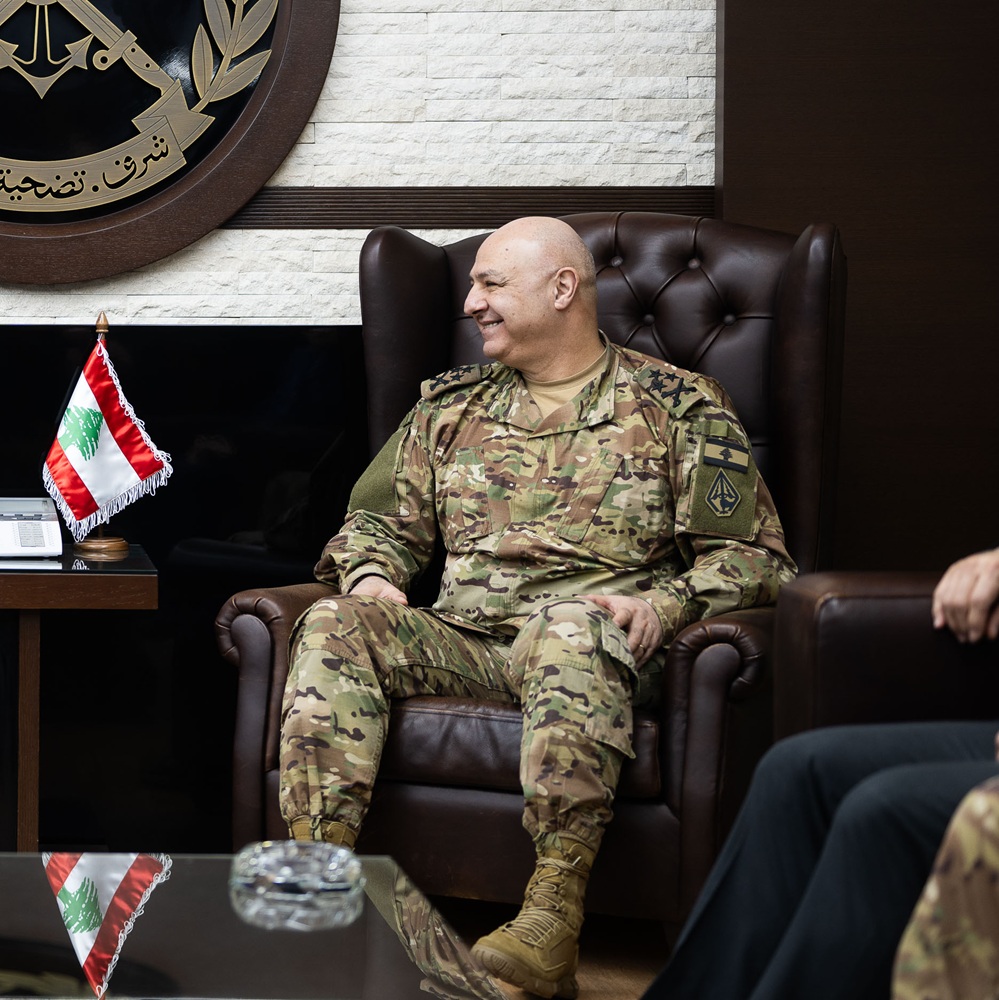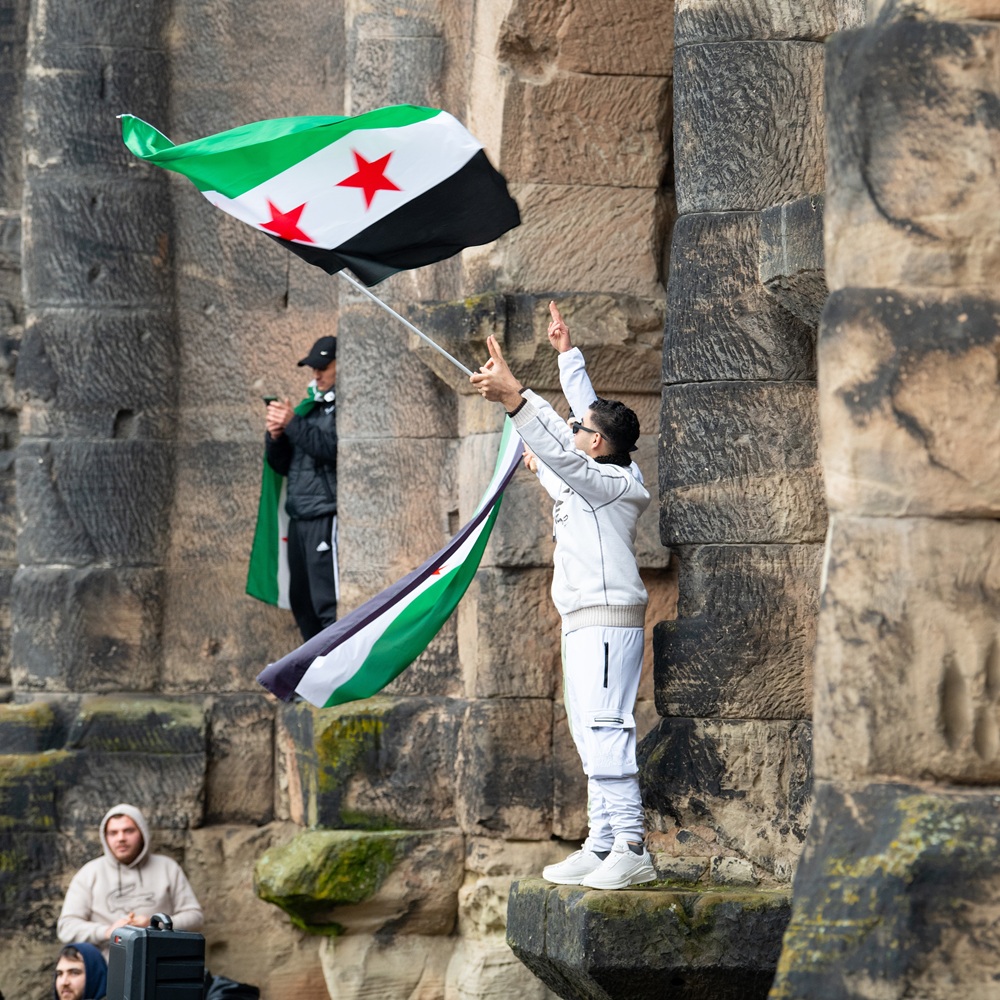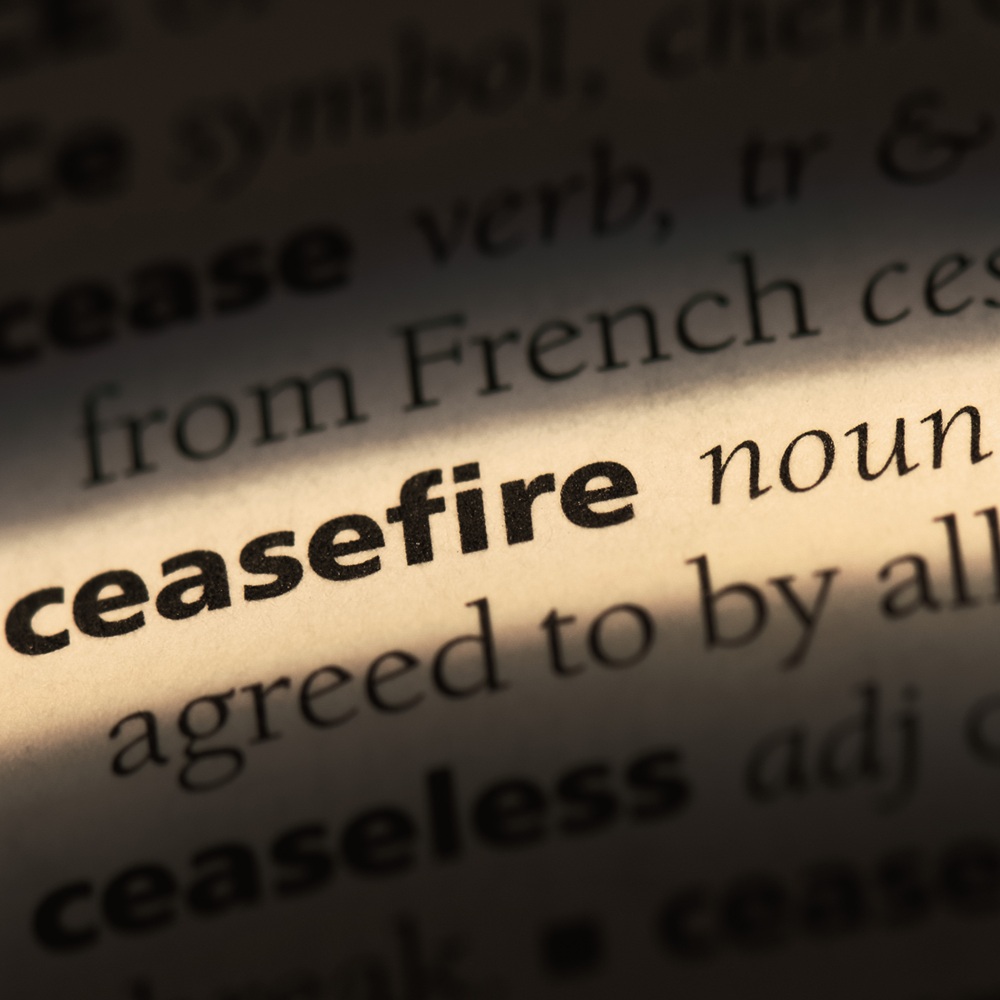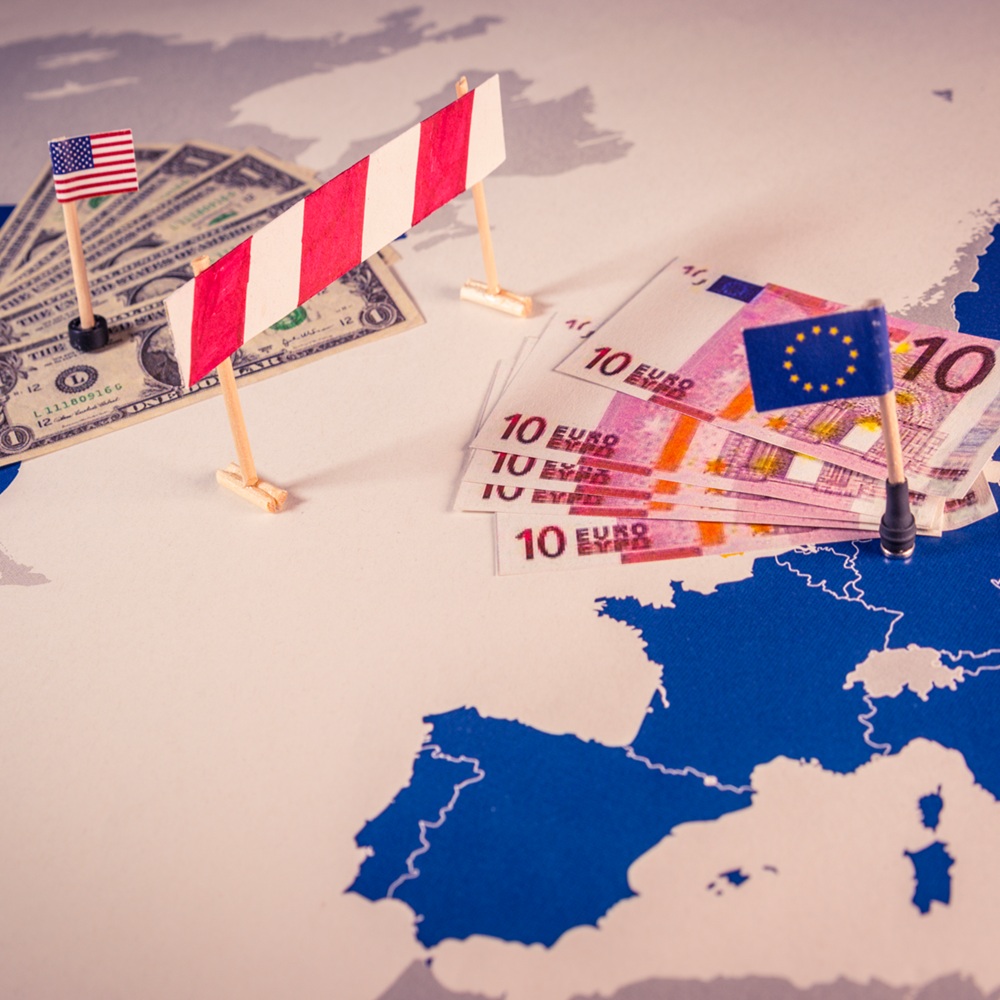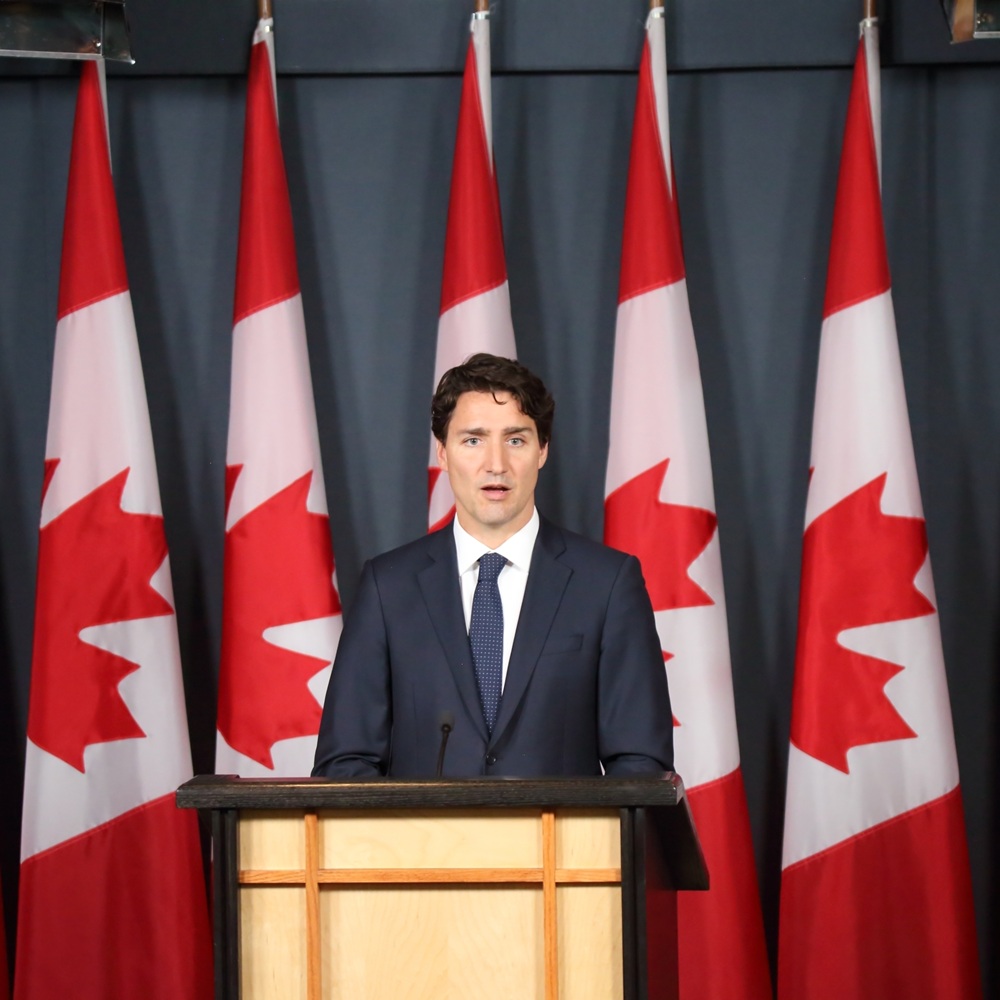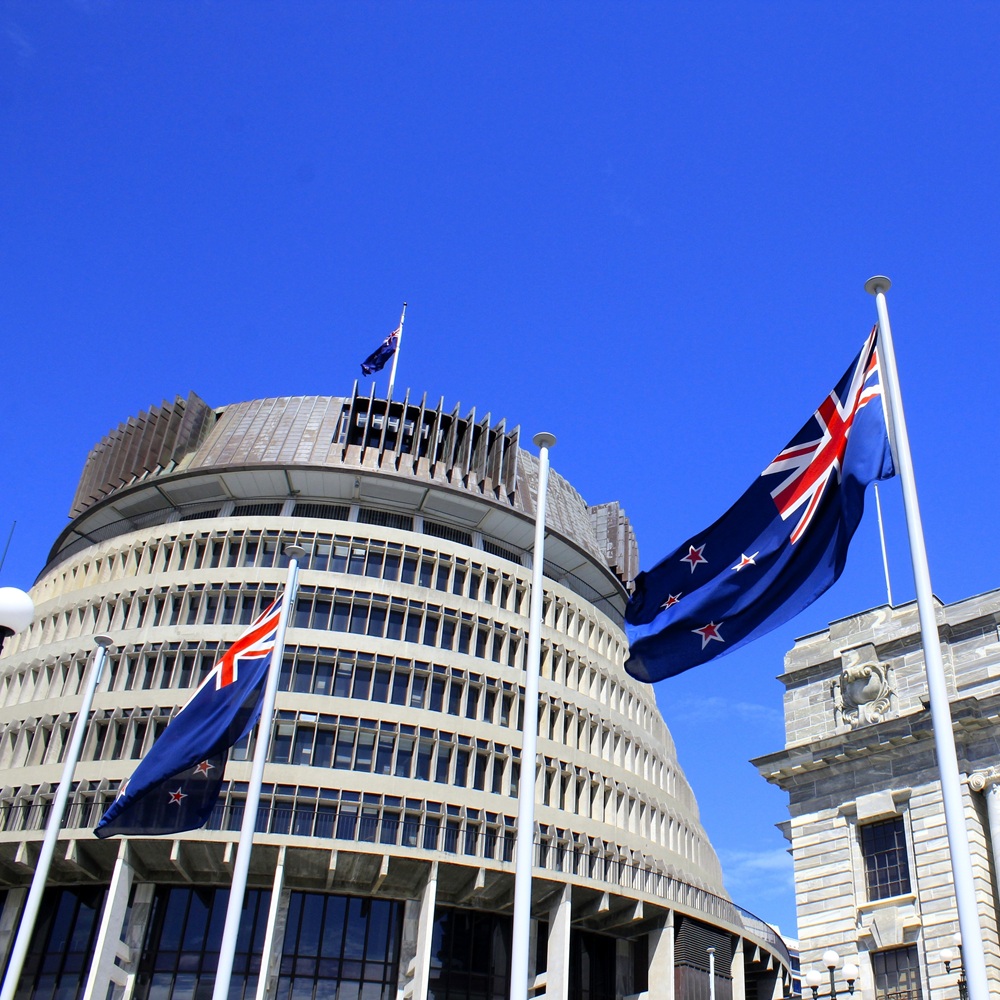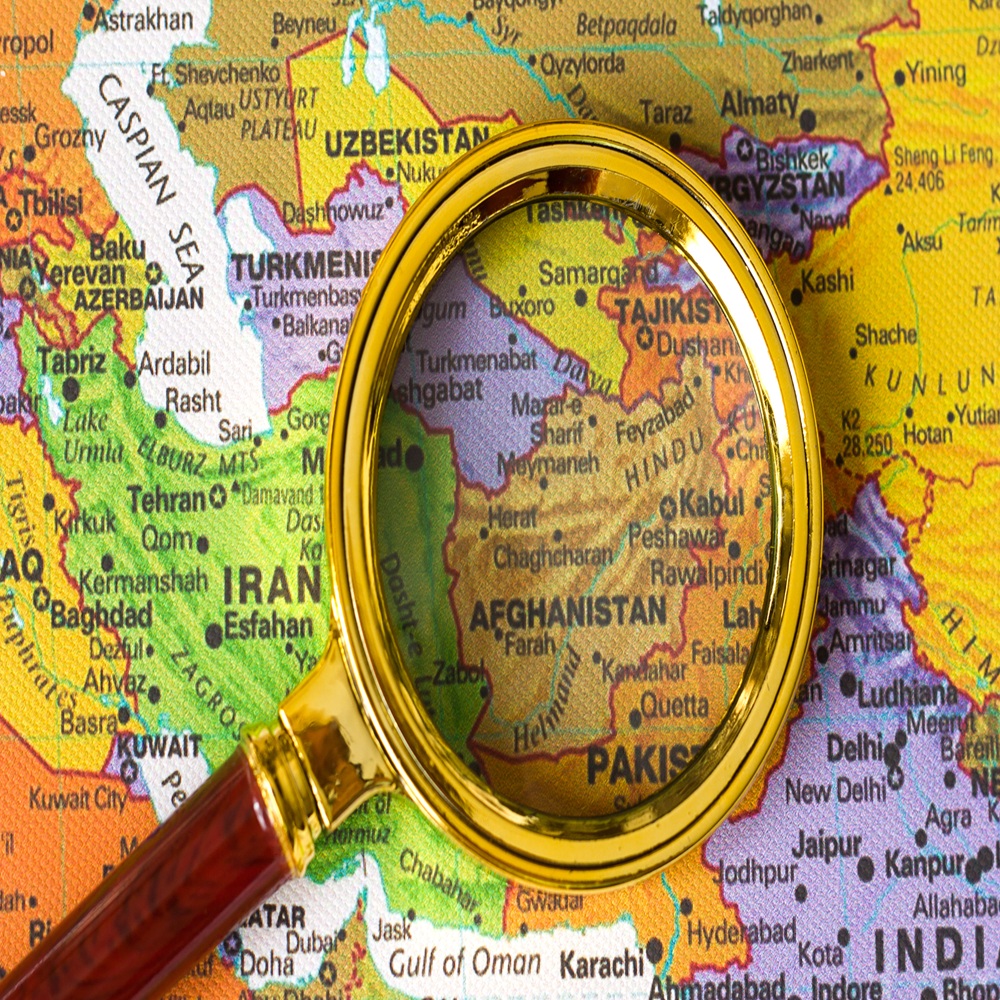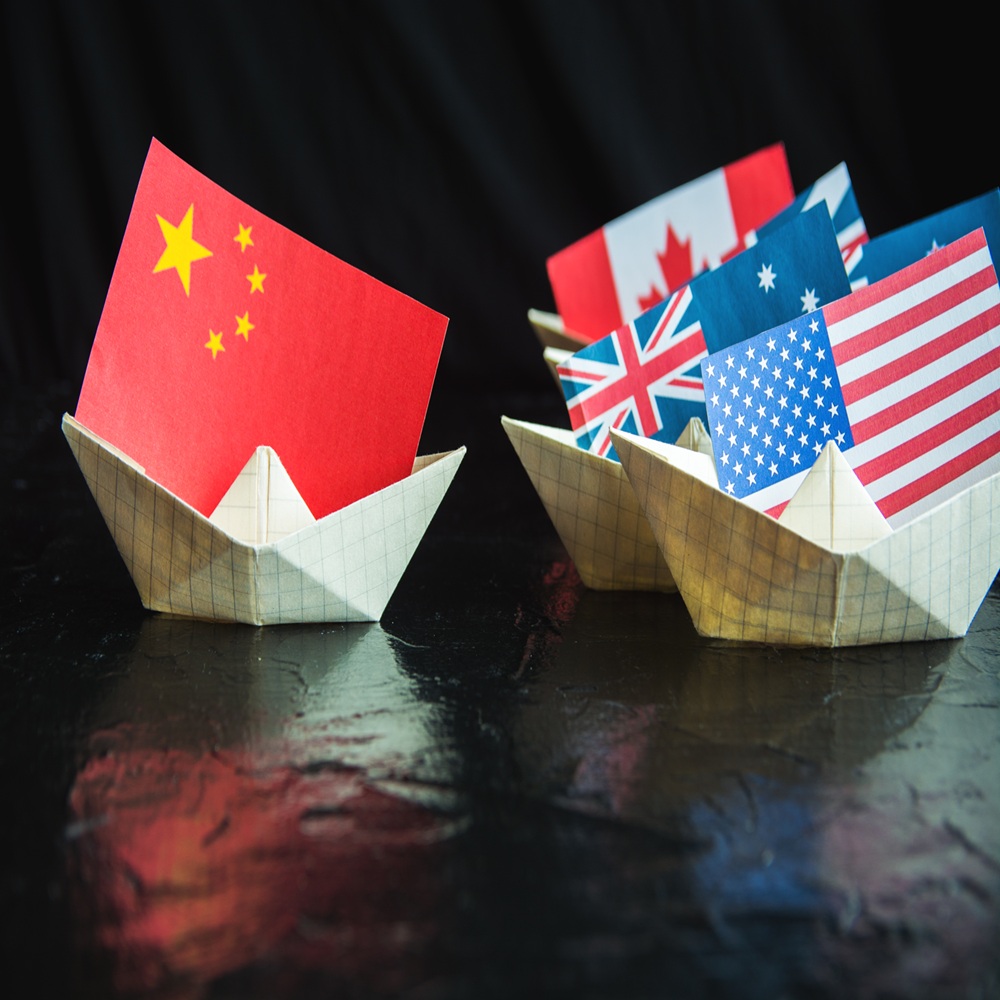What a second Trump Administration will mean for multilateralism
by Andrea Ellen Ostheimer
한국어로 읽기
Leer en español
In Deutsch lesen
Gap
اقرأ بالعربية
Lire en français
Читать на русском
Less than a week away from the inauguration of Donald J. Trump as the 47th President of the United States of America, not only strategic allies and trading partners but also multilateral organisations and the UN system are bracing themselves for the certainty of unpredictability. However, taking into consideration President Trump’s first term in office, his announcements on the campaign trail, his own personality, the nomination of personnel for positions of high relevance for the international system as well as the impact of the Republican trifecta and diminished checks and balances, a substantial re-positioning of the US within the international system can be expected. The impact of the first Trump Administration Since the UN’s founding in 1945, the relationship between the US and the United Nations can at best be described as contradictory, which is largely the result of constant tensions between domestic considerations and foreign policy goals. As the leading advocate for a successor institution to the League of Nations, the US fundamentally shaped the objectives and values of the United Nations. This support, which had been driven by national interests, started to wane in the mid-70s when enlarged membership and the creation of the G77, a group of 77 developing countries, reduced US influence. Although the US was a leading actor in the UN’s establishment, the UN has become a secondary platform of international cooperation. Various US administrations have engaged substantially with the UN system when it served national interests. However, domestic power constellations have frequently impeded any substantial engagement that has gone beyond financial contributions.1 However, Trump’s “America First” ideology stood out from his predecessors’ policies, and particularly conservative ones, in its obstructive approach to the United Nations and disdain towards institutions such as NATO, thus rebuking the closest allies of the US. Indifference and discord towards the United Nations not only damaged the institution but also the reputation of the US. President Trump’s unilateral “America First” policy and abject disregard for multilateral institutions damaged US legitimacy as a global leader and weakened the UN. Under Trump, the transactional nature of US engagement with the UN became obvious. As long as US interests were served, constructive engagement was applied. US Ambassador to the UN, Nikki Haley even managed to gain the support of China and Russia on a Security Council Resolution (SC/RES/2397) that would impose harsh sanctions on North Korea (DPRK).2 However, in other areas the dominance of national interests guided US policies at the UN during the Trump administration. In showing its unconditional support for Israel, the Trump administration cut all of the US’s funding from the UN Relief and Works Agency for Palestine Refugees (UNRWA) and further reduced its potential role as mediator in the Middle East Peace Process.3 After accusing the UN Population Fund (UNFPA) of supporting coercive abortions and involuntary sterilisations in China without proof, the Trump administration cut all core funding for UNFPA and jeopardised many family planning programmes in developing countries.4 In the Security Council, the US position at times even aligned with Russia’s or China’s policy – particularly when other UNSC members tried to raise the nexus of climate change and security. This, as well as the US positions on the rights of victims of sexual violence in war and their reproductive health, further enhanced tensions with traditional Western allies. In addition, Trump withdrew the US from the Paris Climate Accords, the JCPOA5, the INF treaty6, and boycotted the UN Migration Pact7 negotiations. However, the most obstructive political manoeuvres under President Trump have certainly been the scapegoating of the WHO and the labelling of the organisation as a Chinese puppet during the COVID-19 crisis, the suspension of funding for WHO, and the subsequent withdrawal from the UN body at the height of the pandemic. By doing so, the US squandered its reputation as a reliable partner and blocked any declaration by the UNSC on the pandemic for months. Equally harmful was the US withdrawal from the UN Human Rights (HR) Council in 2018. Not only did the US abandon a platform for denouncing human rights violations worldwide, but its departure also allowed China to disseminate its own human rights narrative. Although autocratic regimes are regularly elected to the Council and use the opportunity to ensure their own HR violations are not addressed, the US withdrawal created a vacuum and took away a powerful ally for like-minded states, particularly the European Union (EU). In the HR Council, we see an increasingly assertive China, which previously only tried to shield its domestic situation from scrutiny, but which has now come up with its own interpretation of collective, developmental rights versus individual human rights. Swift action and a prepared agenda During his first term President Trump only slowly appointed key positions in foreign relations. It took him two years to appoint an Ambassador to Geneva, for example. His ambition to fundamentally cut financial support to the UN system found its limits in Congress. The US remained the world’s largest donor of development and humanitarian assistance. Even within in the Republican party and in conservative circles, particularly in the religious and evangelical constituencies the opinion prevailed that official development assistance still served the interests of the American people. In January 2025, the situation is different. One of the first nominations of Donald Trump after his re-election in November has been Marco Rubio, as Secretary of State, and he appointed Republican Representative Elise Stefanik as his Ambassador to the United Nations in New York. Senator Rubio has been known so far as a supporter of US global engagement as when it serves American economic interests and national security. He is hard on China and aims for more transparency and accountability in the aid sector. He supported the fight against Malaria and other preventable and treatable diseases in the past. Although a sigh of relief went through the development community when his name was circulated, it cannot be taken for granted that he will defend their interests against the MAGA dynamics in the party and administration. As with all Trump appointments, and considering experiences from the past, the question will always be how much autonomy can they preserve, and for how long will they endure in the system?8 Although Donald Trump distanced himself during the campaign from Project 2025, a blueprint for an incoming conservative administration by the Heritage Foundation, it is to be expected that those he has so far selected not only share the views on the multilateral order but also the criticism and preconceptions brought up against the institutions. The frontline of Trump’s anticipated crusade against multilateral organizations might this time also include those who have been spared so far: World Bank, IMF, as well as the OECD. 9 In the case of others, he might continue where the end of his first term prevented further action or the Biden administration reversed the steps he had taken. Human Rights Council The latter has been the case of the Human Rights Council. In 2018 the Trump administration had been withdrawing from the Council arguing that it had become an “exercise in shameless hypocrisy – with many of the world’s worst human rights abuses going ignored, and some of the world’s most serious offenders sitting on the council itself.”10 In October 2021, the US got reelected to the Human Rights Council. In the context of its staunch support for Ukraine, the US became the driving force behind a Commission of Inquiry on Ukraine as well as on the creation of the Special Rapporteur on Russia. However, when its reelection came up again in October 2024, the Biden administration deliberately decided not to stand as a candidate. Although some observers argue that this decision has been taken in order to avoid a backlash from a majority of UN Member States who see the unwavering US position on the collateral implications for International Humanitarian Law and Human Rights by Israel’s fight against Hamas and Hizbollah as a paramount example of double-standards. One could also argue that not being a sitting Member of the Human Rights Council at a time when the likelihood of another withdrawal is not too far away, reduces the reputational damage for the organization as well as for the standing of the US in the International System. US Ambassadors to the United Nations in New York are generally Cabinet Members, thus directly involved in shaping policies. With Elise Stefanik, Trump has not only appointed a staunch supporter of Israel who has accused the UN of being “a den of antisemitism”11 but also a reliable anti-abortion proponent. Her positioning in New York will certainly influence dynamics in Geneva as well. And if Project 2025 is becoming the playbook that everybody expects it to be, the Universal Declaration of Human Rights to which the US is a signatory might not remain the uncontested reference point anymore. The U.S. Commission on Unalienable Human Rights created during the first Trump administration by Secretary of State Mike Pompeo, produced a report which is projected by Project 2025 as an important guidepost for bilateral and multilateral engagements on human rights.12 The report sets out to define which rights are ‘unalienable,’ elevating religious liberty and the right to private property, while dismissing rights the report calls “divisive social and political controversies,” including sexual and reproductive rights, LGBTI rights, and the right to non-discrimination.13 The intention of Project 2025 is not only to reevaluate all multilateral engagements by the US in the light of the work of the Commission on Unalienable Human Rights, but also to forge a consensus among like-minded countries in support of human life, women’s health, support of the family as the basic unit of human society, and defense of national sovereignty. In 2020, the Trump administration sponsored in the UN General Assembly the Geneva Consensus Declaration on Women’s Health and the Protection of the Family (A/75/626) for which it gained the support of 34 Member States, including those whose human rights and women rights track records are anything but clean: e.g. Belarus, Saudi Arabia, Uganda, Pakistan.14 Taking into consideration initiatives like the Geneva Consensus, the in-coming Trump administration could besides of complete withdrawal also undermine Human Rights standards by introducing almost in a similar way as China is doing, new narratives. In this endeavour, the US could even find support amongst states who are normally staunch US critics but who will seize the moment and opportunity to dismantle the liberal rules-based order that they perceive as Western dominated anyway. World Trade Organisation (WTO) To avoid another blockage in the appointment of a WTO Director General in 2025 by the US, WTO members brought forward the re-election process of incumbent Ngozi Okonjo-Iweala by two months. President Trump had already in 2020 blocked her appointment, leaving the organisation without leadership for almost seven months. From an “America first” perspective, “America gets fleeced every day in the global marketplace both by a predatory Communist China and by an institutionally unfair and nonreciprocal WTO.”15 Thus, Project 2025 recommends to reform the WTO or to build a successor organisation and limiting its membership to liberal democracies. The main red-flag for the US at WTO certainly is the developing-country status of China in the WTO and the alleged infringements on US sovereignty – albeit ignoring the veto right the US has as the WTO is a consensus-based organisation. However, and although Trump’s announced tariffs applied on friends and foes will be disruptive for the international trade system, one must highlight that also during the Biden administration, the US has not been a WTO member easy to engage. This held particularly true for the reform of the appellate body of the dispute settlement mechanism whose appointment process remains dysfunctional since the Obama administration. For the in-coming administration, trade is considered also as a tool for development. In this regard it does not differ too much from the reforms out-going USAID Administrator, Samantha Power, had tried to initiate.16 And it could be an area where WTO Director General Ngozi Okonjo-Iweala, who is seen as particularly focused on the development aspects of trade, and the Trump administration could perhaps find a common ground. Humanitarian and development assistance Humanitarian assistance that already faces substantial funding gaps will certainly face new vulnerabilities with the in-coming Trump administration. Despite substantial reductions which already kicked in in 2022, the US remains the largest donor for UN agencies such as the World Food Programme (2023: 36.53% of total WFP came from US); UNHCR (2023: 38.93%); and OCHA (2023: 19.9%). Although humanitarian aid and particularly funding for food security (WFP was run by the Trump ally, David Beasley) was not contentious during Trump’s first administration, this might change. According to Max Primorac who had been Deputy Administrator of USAID during Trump’s first term, and is the author of the Project 2025 chapter on the Agency for International Development, “’emergency’ aid distorts humanitarian responses, worsens corruption in the countries we support, and exacerbates the misery of those we intend to help.[...] humanitarian aid is sustaining war economies, creating financial incentives for warring parties to continue fighting, discouraging governments from reforming, and propping up malign regimes. Nefarious actors reap billions of dollars in profits from diversions of our humanitarian assistance, but so do international organizations.”17 While criticizing the overheads international agencies have to charge in order to deliver aid in emergency situations, Trump affiliated development experts highly advocate for localisation – albeit in a slightly different fashion as progressive voices would do. The quest of the latter for enhanced equity, inclusion, and ownership of local organizations from project design to implementation remains disregarded while a case is built for aid delivery by faith-based organisations. Although enhancing the inclusion of local organizations for the right reasons is laudable, it certainly will not diminish the need for strong oversight and staff capacities on donor level. One reason why multilateral and international organisations are often used as a type of “middlemen” in aid delivery relates to the lean project management structures in Foreign and Development Ministries these days and the need for accountability mechanisms where taxpayers’ money is spent. Drawing on the visions presented by Project 2025, development assistance under the in-coming Trump administration will have a strong focus on countering Chinese influence and will align foreign and developmental with anti-abortion policies. What is labelled as “Protecting life in Foreign Assistance”18 will inter alia reintroduce the “global gag rule” which prohibits US funding to organisations abroad that provide abortion services or information. Trump had already in his first term expanded the interpretation of it to the “Protecting Life in Global Health Policy”, and it is expected that he will include now humanitarian and development assistance as well – making it extremely difficult to assess what is included under these new rules and what not.19 In this context it is almost a given that Trump will cut again all funding for the UN Population Fund (UNFPA) as its reproductive health services worldwide are a red-flag.20 Although UNFPA has gotten used to budget cuts by conservative US governments over the years, loosing 11% of its budget (2023) would not be easy to compensate for. World Health Organisation (WHO) and UNAIDS During the Covid-19 pandemic, the World Health Organisation (WHO) became a prime target for President Trump who inter alia accused the organisation of being too close to China and its handling of the early stages of the outbreak.21 He initiated a process to withdraw the US from it – a move that has been immediately reversed by his successor President Biden. Also for WHO, the US is currently the largest donor of assessed and voluntary contributions totalling 15.59% (2023).22 But with the negotiations of the Pandemic Treaty still underway, and the possibility for states to challenge the finalised amendments of the International Health Regulations until July 2025, it is much more at stake for WHO than just the financial implications of a disruptive relationship with the next Trump administration. With the nomination of Robert Francis Kennedy (RFK) Jr as the new Secretary of the Department of Health and Human Services (HHS), the global health community is on high alert. On his campaign trail for president, RFK Jr. had already proclaimed to stop the pandemic treaty, as has done President elect Trump. In addition, RFK Jr has linked vaccines to autism, called the Covid-19 vaccines deadly, supports anti-vaccine organisations, and even questioned the proven fact that HIV causes AIDS.23 When 77 Nobel Laureates urged the US Senate in December 2024 to reject the nomination of RFK Jr.24, WHO Director General Dr Tedros Ghebreyesus called for a “wait and see” attitude. He and his team are looking for areas where it might be possible to engage the Trump administration and its new HHS secretary. One area could be the epidemic of non-communicable diseases faced by Americans and which is often cited by RFK Jr. who advocates for enhanced prevention by healthier diets, environments and an active lifestyle.25 Health security has in the past always been a matter of common concern, and parties were able to work across the aisle. However, polarisation has also become a characteristic feature here. With a trifecta in place, the majority of Republicans in the House as well as in the Senate could become an issue of survival for programs such as PEPFAR. Already this year, PEPFAR, the US global flagship initiative in the fight against HIV/AIDS that had been established under Republican President George W. Bush in 2003, failed to secure bipartisan support for a full, five-year legislative reauthorization. After conservative groups had launched a campaign accusing without evidence the Biden administration to use PEPFAR money for abortions, the program only secured a temporary one-year reauthorization until March 2025.26 PEPFAR funding (6.5 billion USD in 2024) is comprised of U.S. bilateral funding and U.S. contributions to multilateral organizations addressing HIV, primarily the Global Fund to Fight AIDS, Tuberculosis and Malaria (Global Fund: 1.65 billion USD from PEPFAR) and UNAIDS. Particularly the latter would be severely impacted if funding would get further reduced. In 2024 UNAIDS received 50 million USD from PEPFAR27 making the US its largest donor. Personality, Ideology and Money – a toxic cocktail For most UN Agencies, Funds and Programs the US is the largest contributor in assessed and voluntary contributions. 22% of the UN budget are financed by assessed US contributions. With voluntary contributions counted in, this figure amounted in 2023 to 27.9%.28 Thus, the UN leadership is bracing itself for the worst-case scenarios. However, scraping the bottom of the barrel at times when other donors are equally becoming reluctant in financing multilateral and developmental programs, is only sustainable in the short term. In addition, the much-lamented growing influence of autocratic states such as China will only grow further when the US is creating once again a vacuum that will be filled with pleasure by its adversaries. During the first Trump administration’s withdrawal from multilateralism, the EU and EU Member States were stepping up their engagement and managed in many cases to fill the void. To preserve a rules-based multilateral order, European governments need to be prepared not only to contribute to the empty coffers of UN institutions but also to take on a leadership role and to forge new alliances with states who are still sharing the same values. In the future, Russia will not remain the only disruptor on the multilateral parquet and China will not be the only country trying to create new narratives around human rights. By disengaging from multilateral arrangements and disregarding established collective norms, the next Trump Presidency will certainly have a negative impact on the social fabric of international cooperation. But this should not come to us as a surprise. Multilateralism needs as a minimum requirement moral commitment to the established principles of collective decision-making, including the precondition of pacta sunt servanda. Multilateralism strives for inclusive decision-making and equality amongst those sitting around the table. Multilateralism lives on tolerance for the point-of-view of others, and the acceptance of compromises for the sake of mutual benefits. In the transactional, zero-sum world of Donald Trump neither compromise, reciprocity nor empathy are part of the vocabulary. “America First” reflects his personality and illustrates a perceived incompatibility between US national interests and multilateral engagement.29 To keep up a rules-based international order in a geo-political era of manifold crisis, like-minded states and above all Europeans have to step up their action to preserve what they treasure. Despite all the headwinds coming out of Washington, DC starting January 20th, multilateralism is not doomed to fail without US engagement. Power relations will certainly change but it must be Europe’s core interest to safeguard its influence in shaping the global order. References 1 Ostheimer, Andrea E.: The United Nations and Global Multilateral Organisations as a Playground for American-Chinese Rivalry, in: New Realities of Multilateralism, Panorama 2022, pp. 7-26.[ Panorama 2022_01_Multilateralism_cover_v3_crop.indd https://www.kas.de/documents/288143/21303801/Panorama+2022+New+Realities+of+Multilateralism.pdf/d2ed886c-83fa-6423-90b8-eeaa48ef8620?version=1.0&t=1668409843028 ]. 2 Runde, Daniel F.: Competing and Winning in the Multilateral System. Center for Strategic & International Studies (CSIS), 2020, p 4. [ https://www.csis.org/analysis/competing-andwinning-multilateral-system-us-leadership-united-nations ]. 3 Amr, Hady. 7 September 2018. Brookings. [ https://www.brookings.edu/blog/order-from chaos/2018/09/07/in-one-move-trump-eliminated-us-funding-for-unrwa-and-the-us-role-as-mideast-peacemaker/ ]. 4 Morello, Carl. 4 April 2017. The Washington Post. [https://www.washingtonpost.com/ world/national-security/trump-administration-to-eliminate-its-funding-for-un-population-fundover-abortion/2017/04/04/d8014bc0-1936-11e7-bcc2-7d1a0973e7b2_story.html]. 5 The Joint Comprehensive Plan of Action (JCPOA) had been an accord that restricted the Iranian nuclear program to mere peaceful usage. 6 The Intermediate-Range Nuclear Forces Treaty had limited the type of weapons systems the signatories, US and Russia could pursue. 7 The Global Compact for Safe, https://www.iom.int/resources/global-compact-safe-orderly-and-regular-migration/res/73/195 Orderly and Regular Migration is the first intergovernmental agreement covering all dimensions of international migration. It is a non-legally binding, cooperative framework that upholds the sovereignty of States and their obligations under international law. 8 Saldinger, Adva; Igoe, Michael: “We can work with him: Aid advocates react to Trump’s Rubio pick”, 14 November 2024, [‘We can work with him’: Aid advocates react to Trump’s Rubio pick | Devex https://www.devex.com/news/we-can-work-with-him-aid-advocates-react-to-trump-s-rubio-pick-108752 ] 9 Klingebiel, Stephan; Baumann, Max-Otto: Trump 2.0. in time of political upheaval? Implications of a possible second presidency for international politics and Europe, IDOS Policy Brief, No 24/2024, [https://doi.org/10.23661/ipb24.2024]. 10 Mike Pompeo, US Secretary of State, 19 June 2028 [Remarks on the UN Human Rights Council - U.S. Mission to International Organizations in Geneva https://geneva.usmission.gov/2018/06/21/remarks-on-the-un-human-rights-council/ ] 11 Elise Stefanik cited in King, Ryan; Spector, David, New York Post, 20 November 2024, [ICYMI: New York Post: Elise Stefanik vows to take on ‘den of antisemitism’ and ‘apologist for Iran’ at the UN | Press Releases | Congresswoman Elise Stefanik https://stefanik.house.gov/2024/11/icymi-new-york-post-elise-stefanik-vows-to-take-on-den-of-antisemitism-and-apologist-for-iran-at-the-un ]. 12 2025_MandateForLeadership_CHAPTER-06.pdf https://static.project2025.org/2025_MandateForLeadership_CHAPTER-06.pdf 13 Commission on Unalienable Rights | https://bidenhumanrightspriorities.amnestyusa.org/commission-on-unalienable-rights/ 14 n2034430.pdf https://documents.un.org/doc/undoc/gen/n20/344/30/pdf/n2034430.pdf 15 Navarro, Peter: The case for fair trade, Project 2025, [2025_MandateForLeadership_CHAPTER-26.pdf https://static.project2025.org/2025_MandateForLeadership_CHAPTER-26.pdf ] 16 90% of USAID funding from US Congress is earmarked and dedicated to basic sectors such as health care, education and agriculture. At the start of the Biden administration only 5% of USAID’s budget went into economic growth programs. Miolene, Elissa: How economic growth became a forgotten priority at USAID, 10 December 2024, [How economic growth became a forgotten priority at USAID | Devex https://www.devex.com/news/how-economic-growth-became-a-forgotten-priority-at-usaid-108911#:~:text=At%20the%20start%20of%20the,lack%20of%20focus%20surprised%20her. ] 17 Primorac, Max: The Agency for International Development, Project 2025 [2025_MandateForLeadership_CHAPTER-09.pdf https://static.project2025.org/2025_MandateForLeadership_CHAPTER-09.pdf ]. 18 [2025_MandateForLeadership_CHAPTER-09.pdf https://static.project2025.org/2025_MandateForLeadership_CHAPTER-09.pdf ] 19 Igoe, Michael: What we do and don’t know about Trump’s US aid plans, 15 November 2024, [What we do and don't know about Trump's US aid plans | Devex https://www.devex.com/news/what-we-do-and-don-t-know-about-trump-s-us-aid-plans-108719 ] 20 Lynch, Colum: Will Trump gut UN family planning funds….again?, 31 October 2024, [Will Trump gut UN family planning funds ... again? | Devex https://www.devex.com/news/will-trump-gut-un-family-planning-funds-again-108655 ] 21 Coronavirus: what are President Trump’s charges against WHO?, BBC Fact Check, 8 July 2020, Coronavirus: What are President Trump's charges against the WHO? https://www.bbc.com/news/world-us-canada-52294623 22 WHO | Programme Budget Web Portal https://open.who.int/2022-23/contributors/top25 23 Lei Ravelo, Jenny: Will RFK Jr. ‘go wild’ on global health?, 4 December 2024, [Will RFK Jr. ‘go wild’ on global health? | Devex https://www.devex.com/news/will-rfk-jr-go-wild-on-global-health-108837 ]. 24 Nobel laureates oppose RFK Jr.'s confirmation to HHS https://thehill.com/policy/healthcare/5031298-nobel-laureates-oppose-rfk-jr/ 25 Fletcher, Elaine Ruth: ‘Give them some space’: WHO Director General on Trump Nomination of RFK Jr as US Health Secretary, 11 December 2024, [‘Give Them Some Space’: WHO Director General On Trump Nomination Of RFK Jr As US Health Secretary - Health Policy Watch https://healthpolicy-watch.news/give-them-some-space-who-director-general-comments-on-trump-nomination-of-rfk-jr-as-us-health-secretary/ ] 26 Igoe, Michael: PEPFAR chief warns waning political will could hurt AIDS fight, 22 July 2024, [PEPFAR chief warns waning political will could hurt AIDS fight | Devex https://www.devex.com/news/pepfar-chief-warns-waning-political-will-could-hurt-aids-fight-107022 ] 27 The U.S. Government and the World Health Organization | KFF https://www.kff.org/coronavirus-covid-19/fact-sheet/the-u-s-government-and-the-world-health-organization/#:~:text=For%20example%2C%20in%20the%20previous%20budget%20period%20(2022%2D2023,totaled%20%2428.1%20million%20(0.4%25). 28 Revenue by Government donor | United Nations – CEB https://unsceb.org/fs-revenue-government-donor 29 Loewener, Franca/Cook, Justin D.: Trump re-elected. How the Trump Doctrine reshapes US multilateral engagement and global influence. 12.11.2024 [Publication - OI] https://observatoire-multilateralisme.fr/publications/trump-reelected-how-the-trump-doctrine-reshapes-us-multilateral-engagement-and-global-influence/ The text of this work is licensed under the terms of by "Creative Commons Attribution-ShareAlike same conditions 4.0 international", CC BY-SA 4.0











